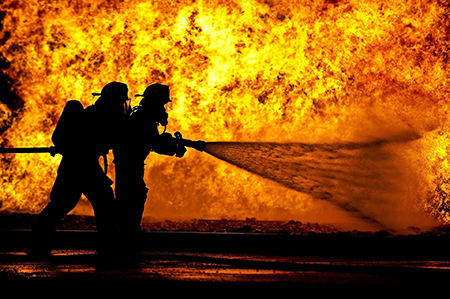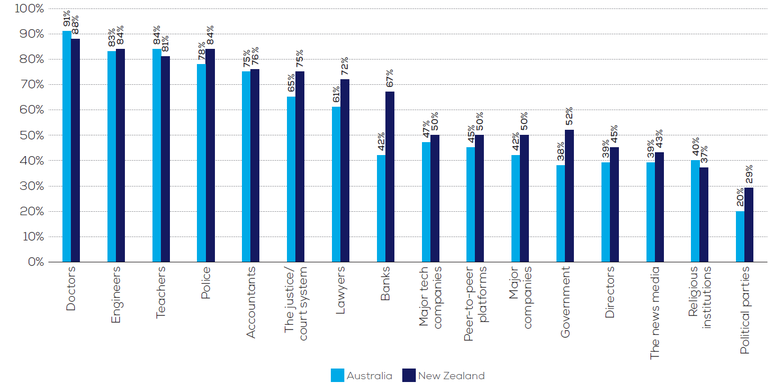Ethical leadership – all the more important when the going gets tough
 It’s not often someone at the Leaders Integrity Forum starts their talk – about culture and conduct no less – by announcing an intention to bluff. Turns out Rhys Jones was just making sure he had our attention. His bluff was “Bottom Line Up Front”, and he started his talk with the gold instead of making us wait until the end.
It’s not often someone at the Leaders Integrity Forum starts their talk – about culture and conduct no less – by announcing an intention to bluff. Turns out Rhys Jones was just making sure he had our attention. His bluff was “Bottom Line Up Front”, and he started his talk with the gold instead of making us wait until the end.
The gold was the point that every wise leader should know: successful organisational change isn’t about processes and structures, it’s about people and culture.
When Rhys took the helm of Fire and Emergency New Zealand, he had a great opportunity to create the sort of organisation that New Zealand thought it already had. The previous NZ Fire Service had been named the most trusted public sector organisation, year after year.
But Rhys had a pretty tough starting position – with 40 organisations merging to form Fire and Emergency New Zealand, those contributing organisations had their own ways of working and arguably not enough respect for how the others worked. They also did not reflect our society – in terms of gender, race, age or religion. As Rhys got around New Zealand talking to his staff, he heard about bullying, racial and sexual harassment, and discrimination.
Not prepared to let this behaviour continue, Rhys commissioned an independent review of workplace policies, practices, and procedures. The mission was to create a culture where all of New Zealand’s communities were respected, because the job of Fire and Emergency is to help, not to judge. Rhys wanted his staff to be able to bring their whole selves to work – to be a firefighter should not require someone to hang up their identity at the door in order to put on their firefighter uniform.
Previous attempts to deal with allegations of a culture of bullying had treated the issue at a compliance level. Rhys needed everyone to take part, to avoid thinking that any culture issues were someone else’s fault, and to focus on finding solutions. He told us that this was an opportunity for organisational renewal – to create a new culture.
Fire and Emergency New Zealand are great at putting out fires. Just as important though is making sure that in doing so, they treat New Zealanders who need their help with the respect they deserve. The service had an opportunity recently to show exactly how a more respectful approach can be useful in fighting fires. There was a fire in early June at Tapu Te Ranga Marae in Island Bay. Lower North Island staff had recently attended a three-day noho marae at Ohakea Marae. The new knowledge fire fighters had about tikanga and how to engage more appropriately with Māori was put to good use when engaging with the residents of Tapu Te Ranga. The evacuation was smooth and there’s now far better collaboration between the residents and Fire and Emergency New Zealand. Staff are seeing tangible evidence of the difference that greater awareness and sensitivity can make.
When Debbie Francis, our chairperson for the session, had introduced Rhys, she commented on the difference between doing things and doing the right things in the right ways. It’s well known these days that the most critical factor in shaping an organisation’s culture is leadership – how leaders set standards, what they say, and how they act when expectations of good conduct are breached. And setting the right tone at the top doesn’t just happen: leaders need to explicitly promote the behaviours they want, and they need to be planned, deliberate, and tenacious in doing so.
When Steve Walker started his address, he picked up very artfully on the point about the importance of what leaders do. Although Debbie mentioned Steve’s running ability in her introduction, Steve admitted that he’s actually doing more horse riding these days. Like people, horses are also perceptive and intelligent – in Steve’s experience, some of the unintended signals sent to his horse had seen him thrown off more than once.
I can’t imagine that anyone at Audit New Zealand or CA ANZ will throw Steve off anything – he’s a well-liked and respected leader. But his point was well made.
The slide Steve used about who we trust in Australia and New Zealand was interesting – professional groups are at the trusted end of the scale and institutions (such as political parties or religious institutions) at the other. Steve’s perspective was that professionals provide expert views, and it’s easier to trust objective advice. Institutions, on the other hand, speak from an ideological point of view and tend to be trusted only by those who share those views…

Source: Chartered Accountants Australia and New Zealand (2019), The future of trust.
Either way, the fastest way to damage that trust is to act dishonestly or unethically. What isn’t discussed quite so often is the harm that leaders can do by, intentionally or otherwise, putting pressure on staff to compromise their own ethical standards.
Steve shared some research in the UK, Australia, and New Zealand by the Institute of Business Ethics. A quarter of the respondents were aware of misconduct at work and one in 10 had felt pressured to compromise their ethical standards. Intended or not, the signals that leaders send have consequences.
Given the role of our Office, I tend to reflect on what these issues mean in the public sector. It is true that most leaders in the public sector are here because we want to make a difference. To do that, we must demonstrate that we are always acting with the utmost integrity – regardless of time or resource pressures. We set the culture and tone within our respective organisations, through what we say and do – not only when things are going well, but on the tough days too.
